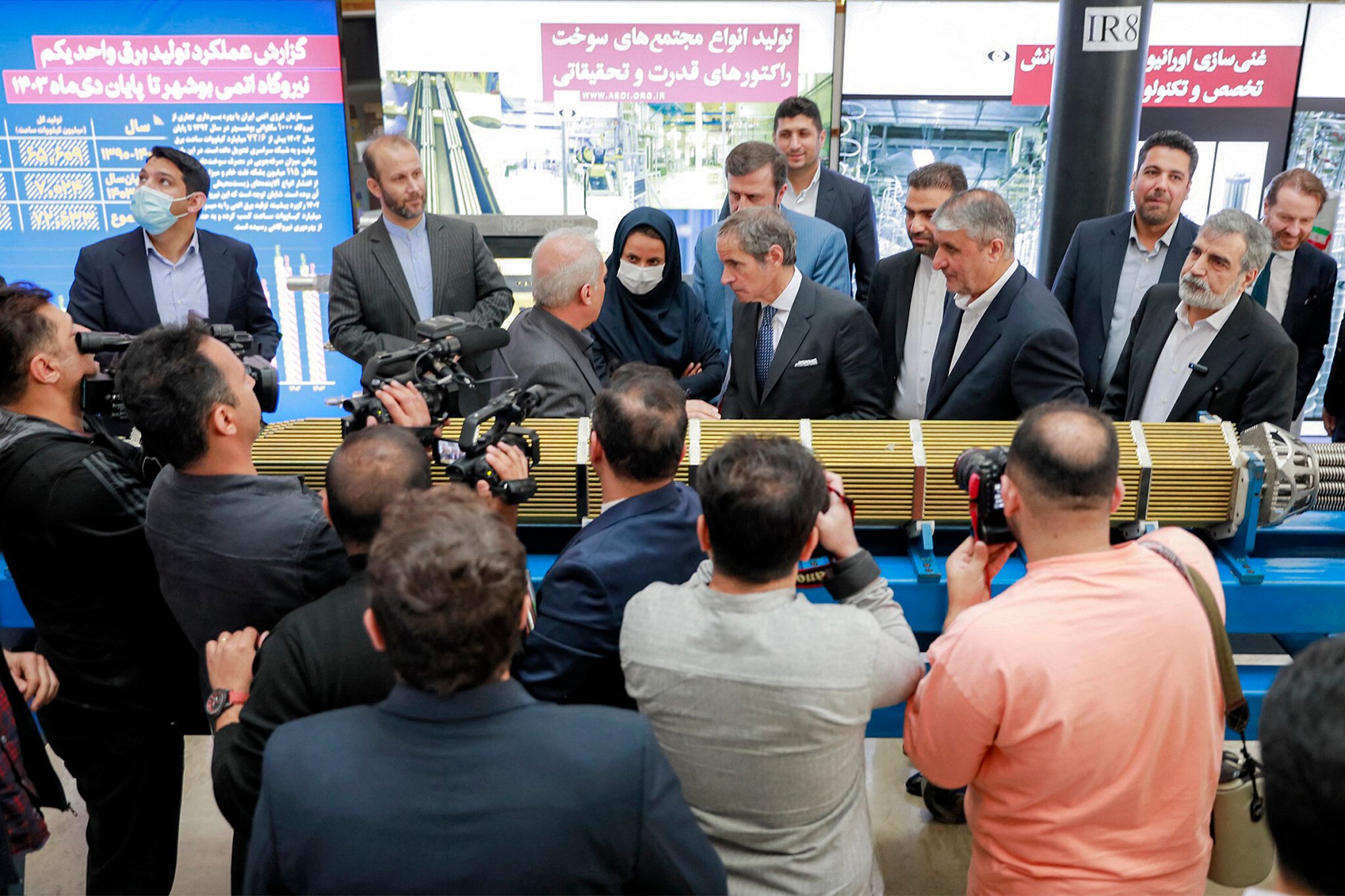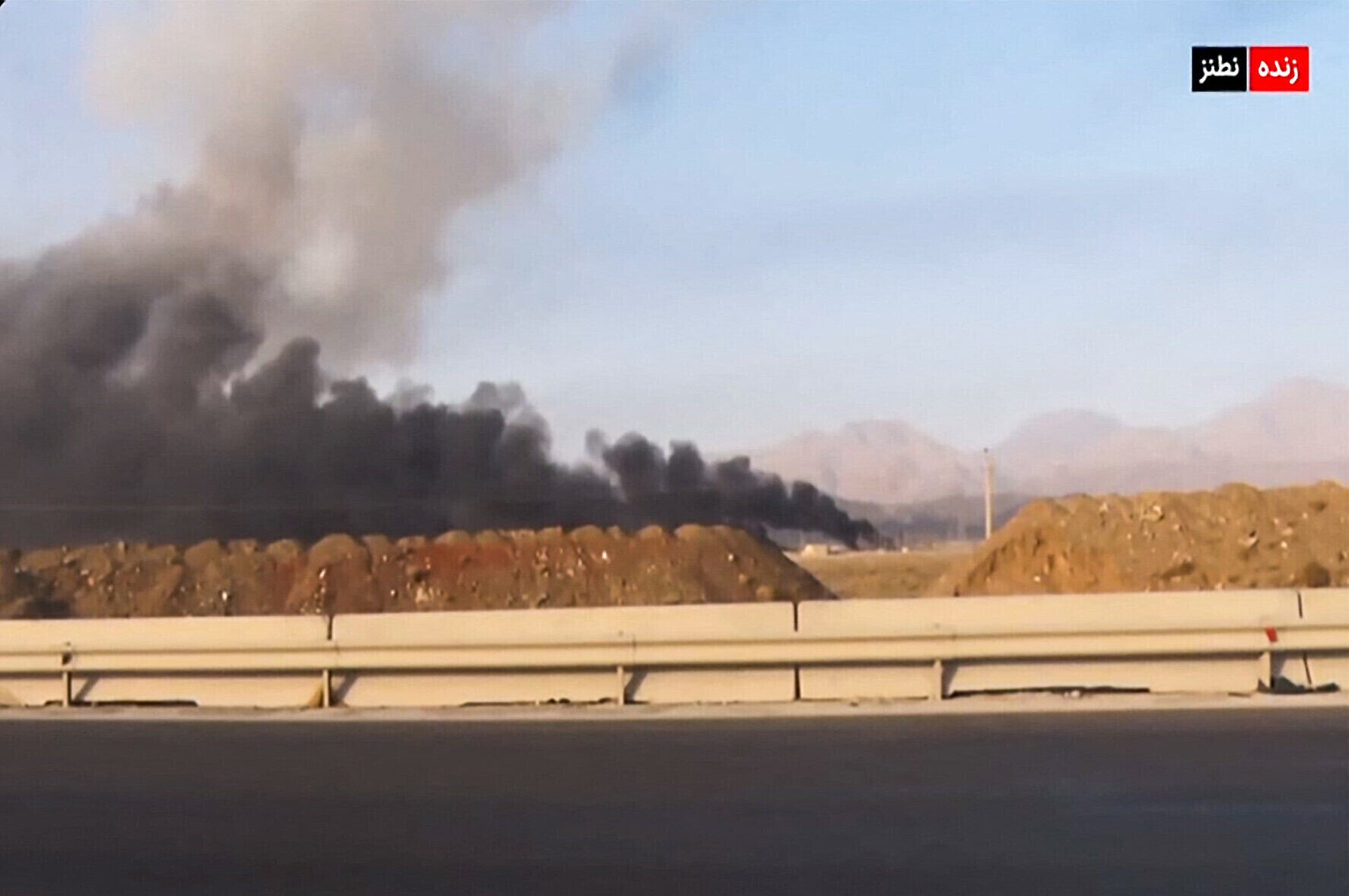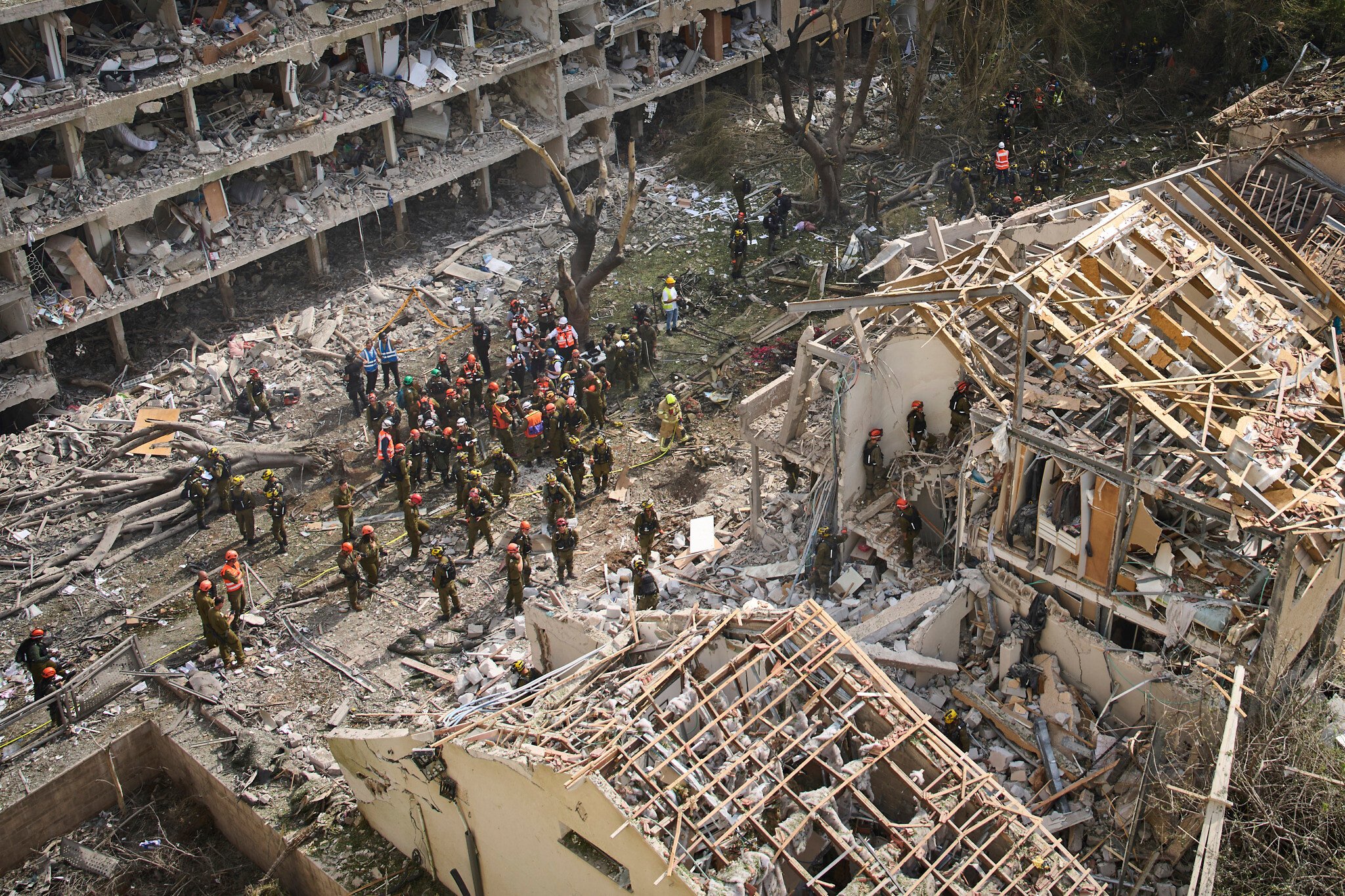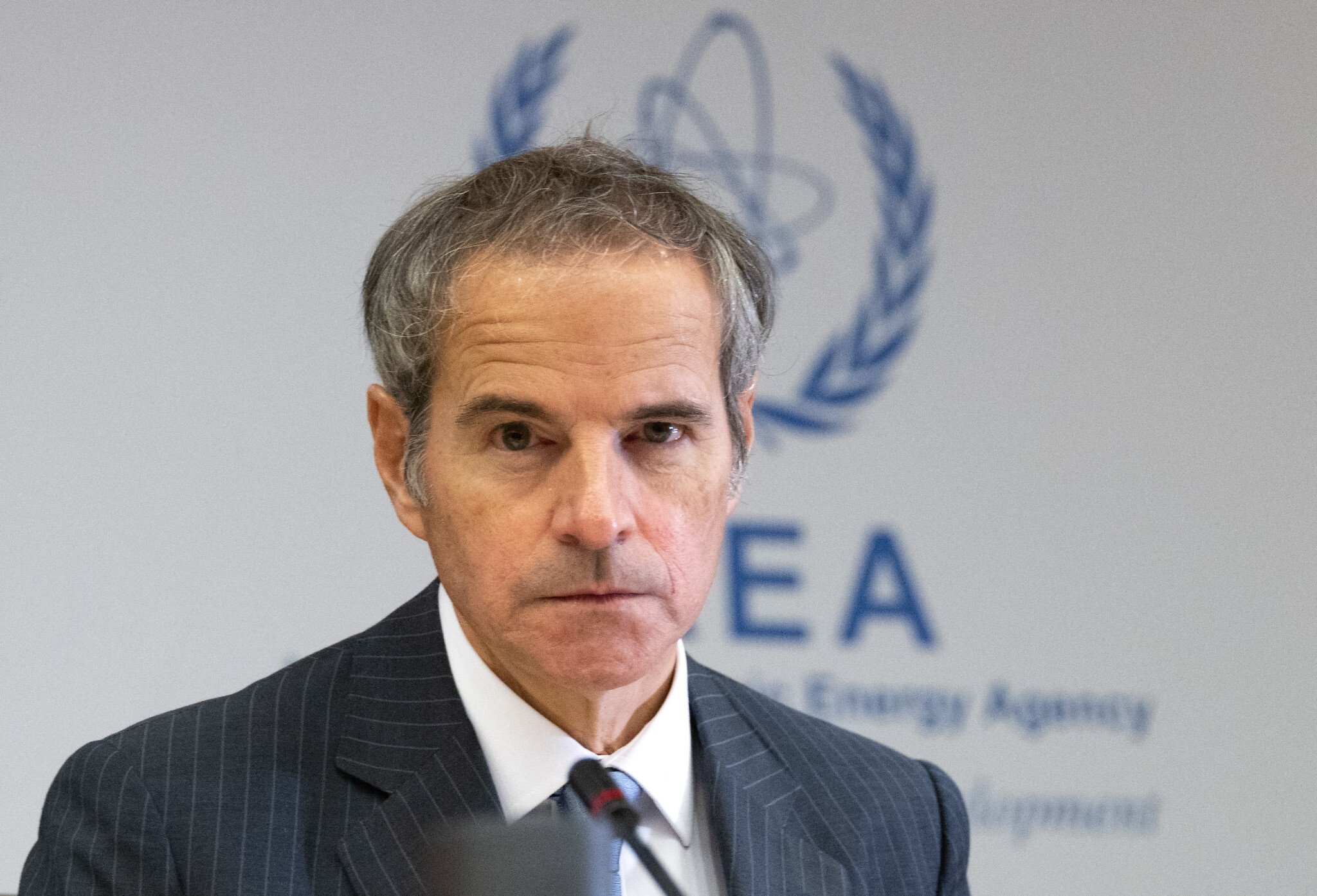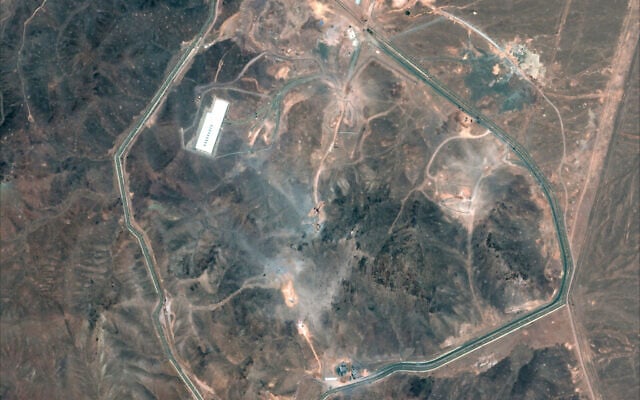


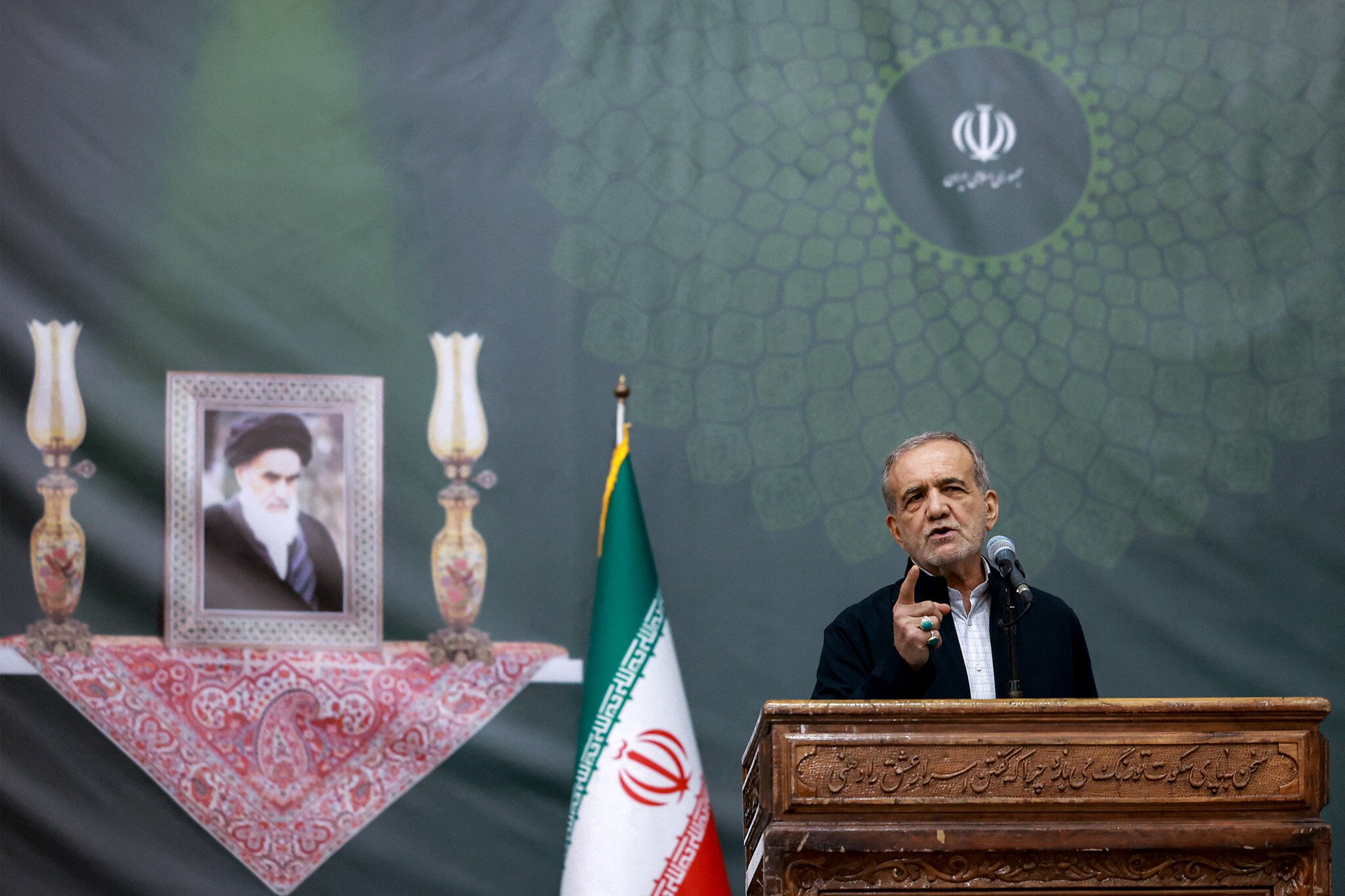
Iran on Wednesday formally suspended its cooperation with the UN nuclear watchdog, a measure drawn up in the wake of unprecedented Israeli and US strikes on the Islamic Republic’s nuclear sites.
Following a parliament vote on the matter last week, the bill was approved by the Guardian Council, a body tasked with vetting legislation, before it received a final ratification from the presidency.
Iranian President Masoud Pezeshkian “promulgated the law suspending cooperation with the International Atomic Energy Agency,” state TV said.
The war between Iran and Israel, which broke out on June 13 and lasted for 12 days, has intensified tensions between Tehran and the International Atomic Energy Agency (IAEA).
On June 25, a day after the ceasefire began, Iranian lawmakers overwhelmingly voted in favor of the bill to suspend cooperation with the agency.
State media said Wednesday that the legislation had cleared the final hurdle and was in effect.
The text, published by Iranian media, stated that the legislation aims to “ensure full support for the inherent rights of the Islamic Republic of Iran” under the nuclear non-proliferation treaty, and “especially uranium enrichment.”
Responding to bill, the IAEA said that the UN nuclear body was “aware of these reports” and would be “awaiting further official information from Iran.”
The issue of enrichment was at the core of disagreements between Washington and Tehran in nuclear negotiations.
Israel and Western countries accuse Iran of seeking to acquire nuclear weapons — an ambition Tehran denies.
The text of the law did not specify concrete moves linked to the suspension of cooperation with the IAEA, whose inspectors have had access to declared nuclear facilities, although at times that access has been obstructed.
Iranian officials have sharply criticized the IAEA for what they described as the agency’s “silence” in the face of the Israeli and US strikes on Iranian nuclear sites.
The US and Israel said the strikes were intended to prevent Iran from attaining nuclear weapons and to radically degrade its ballistic missile capabilities.
Iran, which openly seeks to destroy Israel, claims its nuclear program is solely geared toward civilian use, but it has enriched uranium to 60 percent purity, above levels needed for civilian usage and a short step from the level needed for weapons production, obstructed international inspectors from checking its nuclear facilities, and expanded its ballistic missile capabilities.
Israel says it holds intelligence information indicating that Tehran was taking active steps to build a bomb. It has also warned that it could take further military steps if it sees Iran attempting to rebuild its nuclear and missile programs.
Tehran has also lambasted the IAEA for a resolution adopted on June 12 that accused Iran of noncompliance with its nuclear obligations.
Iranian officials said the resolution was among the “excuses” for the Israeli attacks.
On Wednesday, senior Iranian judiciary official Ali Mozaffari said that IAEA director Rafael Grossi should “be held accountable” for what he called “preparing the groundwork for the crime” against Iran, referring to Israel’s strikes.
Mozaffari, without evidence, accused Grossi of “deceptive actions and fraudulent reporting,” according to Iranian news agency Tasnim.
Iran has rejected a request from Grossi to visit nuclear facilities bombed during the war, and earlier this week Pezeshkian decried his “destructive” conduct.
France, Germany and Britain have condemned unspecified “threats” against the IAEA chief.
Iran has said Grossi’s request to visit the bombarded sites signaled “malign intent” but insisted there were no threats against him or against inspectors from his agency.
Iran’s ultra-conservative Kayhan newspaper has recently claimed that documents showed Grossi was an Israeli spy and should be executed.
On Monday, Iranian foreign ministry spokesman Esmaeil Baqaei said the parliament vote to halt cooperation with the IAEA reflected the “concern and anger of the Iranian public opinion.”
The 12-day war began when Israel launched a major bombing campaign on Iran and killed top military commanders and nuclear scientists, with Tehran responding with waves of missiles and drones launched at Israel.
On June 22, the United States launched unprecedented strikes of its own on Iranian nuclear facilities at Fordo, Isfahan and Natanz.
More than 900 people were killed in Iran, according to the judiciary. The numbers cannot be independently verified and do not differentiate between members of the military and civilians.
Iran’s retaliatory attacks killed 28 people in Israel.
US President Donald Trump said the US attacks had “obliterated” Iran’s nuclear program, though the extent of the damage was not clear.
Iranian Foreign Minister Abbas Araghchi has admitted “serious” damage to nuclear sites.
But in an interview with CBS Evening News, he said: “One cannot obliterate the technology and science… through bombings.”

